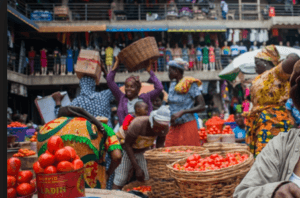West Africa inequality most extreme in the world – Oxfam report
 West African governments have to up their efforts at reducing inequality as the region has the most extreme divides between rich and poor in the world, according to the first Commitment to Reducing Inequality Index (CRII) regional report.
West African governments have to up their efforts at reducing inequality as the region has the most extreme divides between rich and poor in the world, according to the first Commitment to Reducing Inequality Index (CRII) regional report.
Launched by Oxfam and Development Finance International to coincide with the start on Tuesday of the High-level Political Forum (HLPF) on Sustainable Development in New York, the Index urges West African governments to prioritise fighting inequality.
The Index measures, compares and ranks West African governments’ commitment on three pillars: public spending, taxation, and labour markets.
The figures are stark
For instance, five of Nigeria’s richest men have a combined wealth of $29.9 billion – more than the country’s entire national budget for 2017.
However, about 60 per cent of Nigerians live on less than $1.25 a day, the threshold for absolute poverty.
Inequalities between rural and urban populations are particularly noticeable in West Africa, the Index notes.
In Ghana, 62.3 per cent of urban households have access to treated water compared with 17.1 per cent of rural households. Also 88.6 per cent of urban population are connected to the national grid as against 48.3 per cent of the rural population.
The amount of wealth held in Africa rose by 13 per cent between 2007 and 2017, according to the Index, with three West African countries recording the largest growth: Côte d’Ivoire (by 43 per cent), Ghana (39 per cent) and Nigeria (19 per cent).
“These increases in national wealth presented an enormous opportunity to improve the lives of many, but unfortunately much of it benefited only a select few and has been hidden away offshore and untaxed.”
It adds that ECOWAS countries are losing an estimated $9.6 billion to corporate tax incentives offered to multinational companies.
“This would be enough to build about 100 modern and well-equipped hospitals each year in the region or seven brand new hospitals per country in one year.”
The three most committed West African countries to reducing inequalities are Cape Verde, Mauritania and Senegal, with the three least committed being Nigeria, Sierra Leone and Niger.
Burkina Faso is the only West African country among the top 10 most committed to social spending in Africa.
West Africa has the least population with access to water and a decent education in Africa, while Nigeria has the worst score on social spending, not only in Africa but in the world, according to the Index.
West Africa’s universal health coverage is the lowest of all sub-regions of Africa.
The average universal health coverage in the ECOWAS region is 38 per cent, while it is 47.2 per cent in East Africa and 50.2 per cent in Southern Africa, the Index says.
On the educational front, the Index notes that if all 15-year-olds achieved a basic level of education, West Africa could increase its economic growth by nearly four per cent.
“This Index reveals that West African governments are exacerbating inequality by underfunding public services, such as healthcare and education,” said Adama Coulibaly, Regional Director of Oxfam in West Africa.
“It also shows that ECOWAS governments are underfunding the agriculture sector on the one hand, while under-taxing corporations and the wealthy, and failing to clamp down on tax evasion, tax avoidance and corruption, on the other.
“This is unacceptable”
On the labour front, the Index says that West Africa is the most male-dominated region in Africa in terms of participation in the jobs market.
The gap is widest in Mauritania where only 31 per cent of women of working age are in paid work compared to 67.7 per cent of men, while in Benin, it is 45.5 per cent female, and 69.9 per cent male.
Ghana’s labour market is the most inclusive in the sub-region with 74.8 per cent women and 79.2 per cent men, according to the Index.
Although 35 per cent of West Africa’s economy is agriculture, employing over 50 per cent of the work force, especially women, most governments in the region do not honour the Malabo commitments to invest 10 per cent of their national budget in agriculture, the report finds.
The report also presents an ambitious policy agenda to address inequality in West Africa, both for national governments and for ECOWAS.
“There is nothing inevitable about the inequality crisis in the West Africa region, and without radically increasing the commitment to reduce inequality, the crisis is likely to only worsen,” said Joel Akhator Odigie of the African branch of the International Trade Union Confederation (ITUC-Africa).
“Governments can build a brighter future for everyone, including women and girls who are the most impacted by inequality – not just a privileged few.”
Source: GNA
